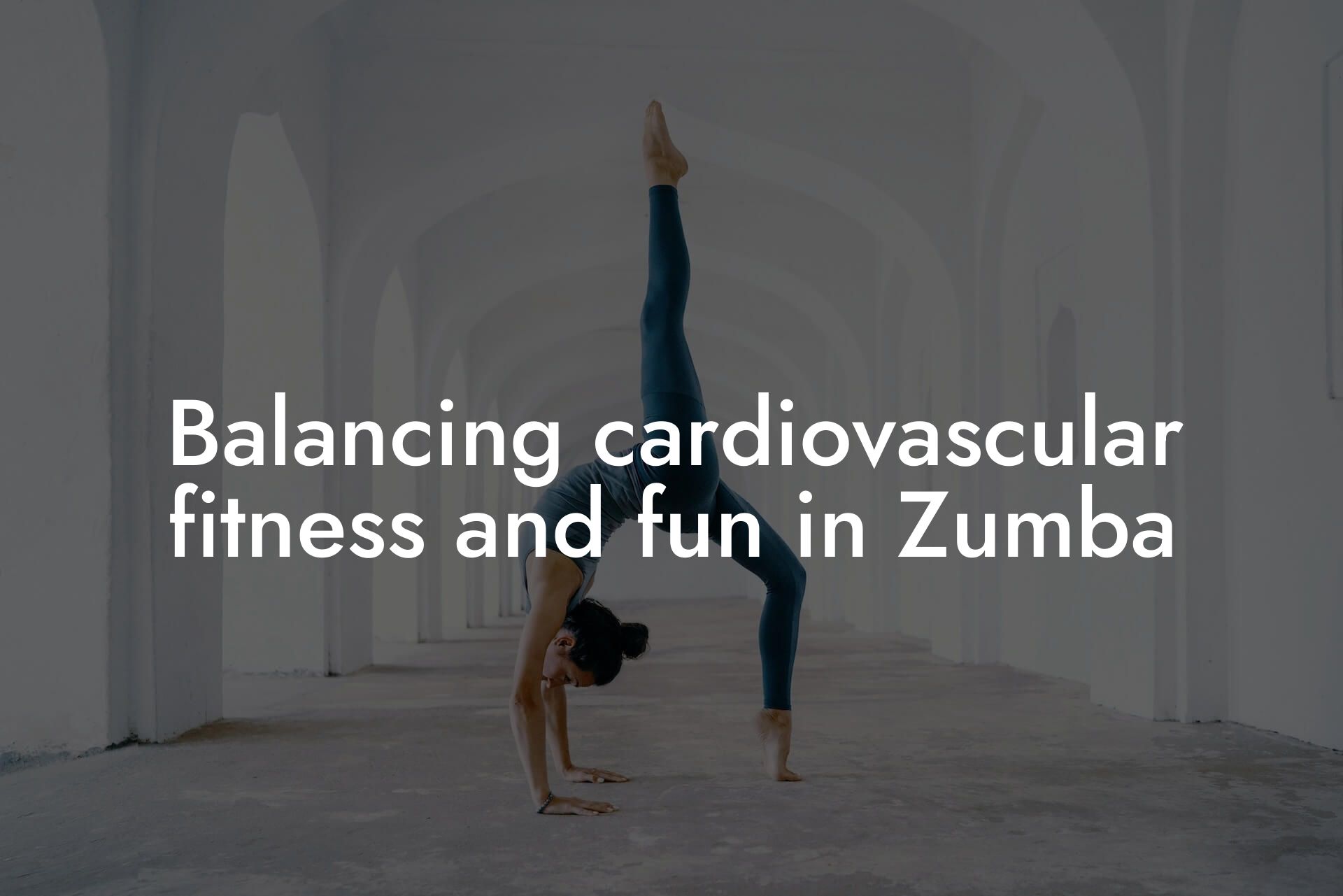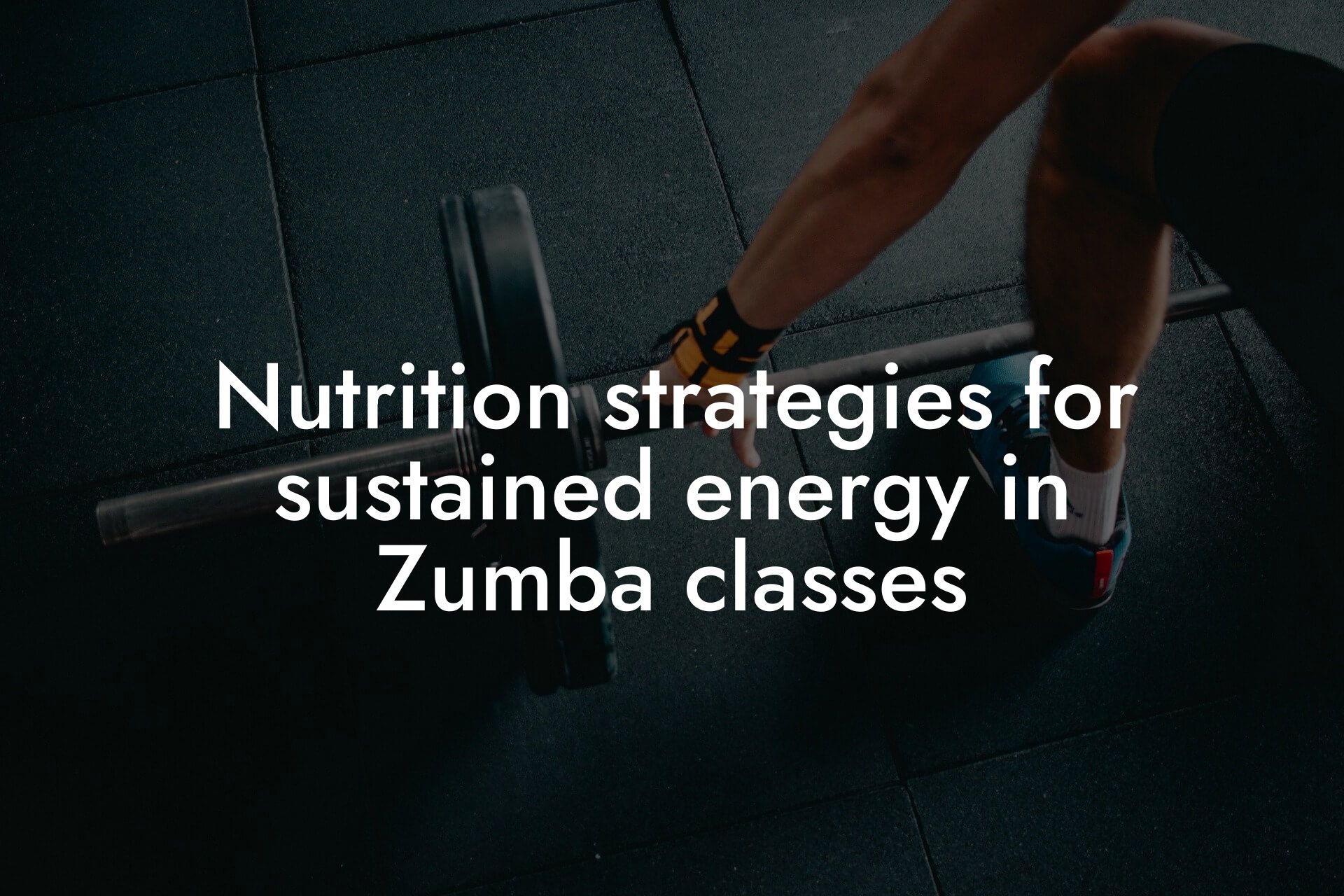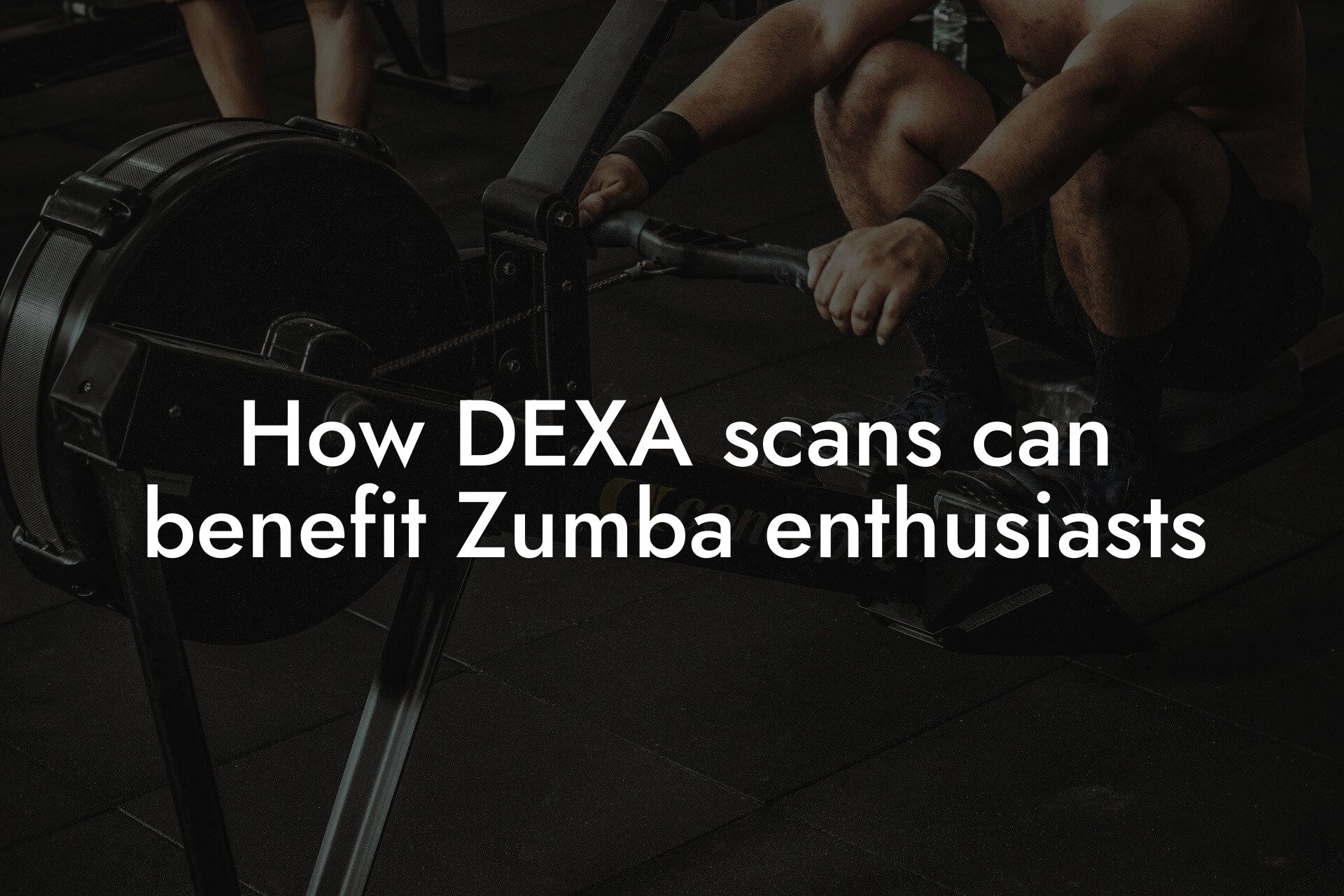What is Bone Density?
Bone density refers to the measure of the amount of minerals, such as calcium and phosphorus, present in the bones. It is an important indicator of bone health and strength. Having high bone density means that the bones are strong and less likely to fracture or break, while low bone density increases the risk of osteoporosis and fractures.
Table of Contents
Why is Bone Density Important for Zumba Performance?
Zumba is a high-impact dance fitness program that involves repetitive movements, jumps, and landings, which can put a significant amount of stress on the bones. Having high bone density is essential for Zumba enthusiasts, as it helps to absorb the impact of these movements and reduce the risk of injuries and fractures. Additionally, good bone density can improve overall athletic performance, as it enables individuals to move with more power, speed, and agility.
How Does Zumba Affect Bone Density?
Zumba can have both positive and negative effects on bone density. On the positive side, the weight-bearing exercises involved in Zumba can help to stimulate bone growth and increase bone density. This is because the bones are subjected to mechanical stress, which triggers the production of osteoblasts, the cells responsible for bone formation. However, if Zumba is performed with poor technique or without proper warm-up and cool-down, it can lead to overuse injuries and stress fractures, which can negatively impact bone density.
Risk Factors for Low Bone Density in Zumba Enthusiasts
Several factors can increase the risk of low bone density in Zumba enthusiasts, including:
- Genetics: Having a family history of osteoporosis or low bone density can increase the risk.
- Age: Bone density naturally decreases with age, and Zumba enthusiasts over 40 may be at higher risk.
- Hormonal changes: Changes in hormone levels, such as those that occur during menopause, can affect bone density.
- Poor nutrition: A diet lacking in calcium and vitamin D can contribute to low bone density.
- Sedentary lifestyle: A lack of physical activity can lead to weaker bones.
- Inadequate warm-up and cool-down: Failing to properly warm up and cool down before and after Zumba can increase the risk of injuries and fractures.
How to Improve Bone Density for Better Zumba Performance
There are several ways to improve bone density for better Zumba performance, including:
- Engage in weight-bearing exercises: In addition to Zumba, incorporate other weight-bearing exercises, such as running, jumping, and strength training, into your fitness routine.
- Eat a balanced diet: Ensure that your diet is rich in calcium and vitamin D, and consider taking supplements if necessary.
- Practice proper technique: Learn proper Zumba technique to reduce the risk of injuries and fractures.
- Incorporate flexibility and stretching exercises: Incorporate flexibility and stretching exercises into your routine to improve flexibility and reduce the risk of injuries.
- Get enough sleep: Adequate sleep is essential for bone health, so ensure that you get 7-9 hours of sleep per night.
How DEXA Scans Can Help Zumba Enthusiasts
A DEXA (Dual-Energy X-ray Absorptiometry) scan is a non-invasive test that measures bone density. For Zumba enthusiasts, a DEXA scan can provide valuable information about bone health and density, allowing for early detection of any potential issues. At Tano Performance Group, we use DEXA scans as part of our comprehensive body assessment, providing individuals with a detailed report on their bone density and other health metrics.
Bone density plays a critical role in Zumba performance, and understanding its importance can help individuals take steps to improve their bone health and reduce the risk of injuries and fractures. By incorporating weight-bearing exercises, eating a balanced diet, practicing proper technique, and getting enough sleep, Zumba enthusiasts can improve their bone density and take their performance to the next level. Additionally, DEXA scans can provide valuable insights into bone health, allowing individuals to make informed decisions about their fitness routine.
Frequently Asked Questions
What is bone density and why is it important for Zumba performance?
Bone density refers to the measure of how dense and strong your bones are. It's an important factor in Zumba performance because it affects your overall skeletal health and increases your risk of injury. As you age, your bone density naturally decreases, which can lead to osteoporosis, a condition characterized by brittle and fragile bones. Maintaining healthy bone density is crucial for Zumba enthusiasts, as it enables them to perform high-impact movements with confidence and reduces the risk of fractures and osteoporosis-related injuries.
How does Zumba impact bone density?
Zumba is a high-impact exercise that can help improve bone density, especially in older adults. The weight-bearing movements and repetitive loading on the bones stimulate bone growth and density. This is especially beneficial for the hips, spine, and legs, which are common areas affected by osteoporosis. However, it's essential to note that the impact of Zumba on bone density can vary depending on factors such as intensity, frequency, and individual bone health.
What are the benefits of high bone density for Zumba enthusiasts?
Maintaining high bone density offers numerous benefits for Zumba enthusiasts, including increased strength, improved posture, enhanced athletic performance, and reduced risk of injuries. High bone density also enables individuals to perform high-impact movements with confidence, which can boost their overall Zumba experience and motivation.
How can I improve my bone density for better Zumba performance?
To improve bone density, incorporate a combination of weight-bearing exercises, resistance training, and high-impact activities like Zumba into your fitness routine. Additionally, ensure you're getting adequate calcium and vitamin D through your diet or supplements, as these nutrients are essential for bone health. Consult with a healthcare professional or registered dietitian to create a personalized plan tailored to your needs.
What are the risks of low bone density for Zumba enthusiasts?
Low bone density increases the risk of osteoporosis, fractures, and injuries, particularly in the hips, spine, and legs. Zumba enthusiasts with low bone density may experience decreased performance, chronic pain, and reduced mobility. In severe cases, osteoporosis can lead to debilitating conditions, such as vertebral compression fractures or hip replacements.
Can I still do Zumba if I have low bone density?
Yes, but it's essential to take precautions to minimize the risk of injury. Consult with your healthcare provider or a fitness professional to modify your Zumba routine and incorporate exercises that are low-impact or non-weight-bearing. They can also help you develop a personalized exercise plan that addresses your specific bone health needs.
How often should I get my bone density checked?
The frequency of bone density checks depends on your age, health status, and risk factors. Generally, women over 65 and men over 70 should get a bone density test every 2-3 years. If you have a family history of osteoporosis or other risk factors, your healthcare provider may recommend more frequent testing.
What are the common risk factors for low bone density?
Risk factors for low bone density include advancing age, family history, sedentary lifestyle, low body mass index, smoking, excessive alcohol consumption, and certain medical conditions such as rheumatoid arthritis or thyroid disorders. Additionally, a diet lacking essential nutrients like calcium and vitamin D can contribute to low bone density.
Can I improve my bone density through diet alone?
While diet plays a crucial role in maintaining healthy bone density, it's unlikely to improve bone density solely through dietary changes. A well-balanced diet rich in calcium and vitamin D is essential, but it should be combined with regular exercise and other lifestyle modifications to achieve optimal bone health.
What are the best exercises for improving bone density?
In addition to Zumba, exercises that can help improve bone density include weightlifting, resistance band exercises, high-impact aerobics, and jumping exercises. It's essential to incorporate a variety of exercises that target different muscle groups and bones to achieve overall bone health.
Can I take supplements to improve my bone density?
Certain supplements like calcium and vitamin D can help support bone health, but it's essential to consult with a healthcare professional before adding any supplements to your regimen. They can help you determine the appropriate dosage and ensure the supplements won't interact with any medications you're taking.
How does menopause affect bone density?
Menopause can lead to a rapid decline in bone density due to the decrease in estrogen levels. This increased risk of osteoporosis can be managed through a combination of hormone replacement therapy, exercise, and diet modifications.
Can I improve my bone density if I have osteoporosis?
While osteoporosis cannot be completely reversed, it's possible to improve bone density and reduce the risk of further bone loss through a combination of medication, exercise, and lifestyle modifications. Consult with your healthcare provider to develop a personalized plan tailored to your needs.
What are the best ways to prevent osteoporosis?
Preventing osteoporosis involves a combination of regular exercise, a balanced diet rich in calcium and vitamin D, and lifestyle modifications such as quitting smoking and limiting excessive alcohol consumption. Additionally, getting enough sleep, managing stress, and maintaining a healthy body weight can also contribute to overall bone health.
Can I do Zumba if I have osteoporosis?
If you have osteoporosis, it's essential to consult with your healthcare provider before starting or continuing a Zumba routine. They can help you modify your exercise plan to minimize the risk of injury and ensure you're taking necessary precautions to protect your bones.
How can I modify my Zumba routine to accommodate low bone density?
To modify your Zumba routine for low bone density, focus on low-impact movements, avoid high-impact jumps and landings, and incorporate exercises that strengthen your core and improve your balance. Additionally, consider working with a fitness professional who can help you develop a personalized exercise plan tailored to your needs.
What are the benefits of working with a fitness professional for Zumba enthusiasts with low bone density?
Working with a fitness professional can help you develop a personalized exercise plan that addresses your specific bone health needs, reduces the risk of injury, and improves your overall Zumba performance. They can also provide guidance on proper form, technique, and modifications to ensure you're exercising safely and effectively.
Can I improve my bone density through stress reduction techniques?
While stress reduction techniques like meditation and yoga can contribute to overall health and well-being, they may not directly improve bone density. However, chronic stress can lead to decreased bone density, so incorporating stress-reducing activities into your lifestyle can have indirect benefits for bone health.
How does sleep affect bone density?
Adequate sleep is essential for bone health, as it allows your body to repair and regenerate bone tissue. Chronic sleep deprivation can lead to decreased bone density, so it's essential to prioritize sleep as part of your overall bone health strategy.
Can I improve my bone density through stretching and flexibility exercises?
While stretching and flexibility exercises are essential for overall fitness, they may not directly improve bone density. However, incorporating exercises that improve flexibility and balance can help reduce the risk of falls and fractures, which are common complications of low bone density.
What are the best resources for learning more about bone density and Zumba performance?
For more information on bone density and Zumba performance, consult with your healthcare provider, a registered dietitian, or a fitness professional. You can also explore reputable online resources such as the National Osteoporosis Foundation, the American Council on Exercise, and the Zumba Instructor Network.
How can I stay motivated to prioritize my bone health and Zumba performance?
Staying motivated involves setting realistic goals, tracking your progress, and celebrating small victories. Find a workout buddy or join a Zumba community to stay accountable and inspired. Additionally, focus on the benefits of exercise beyond just bone health, such as improved overall health, increased energy, and enhanced mental well-being.
Here are some related articles you might love...
- Balancing cardiovascular fitness and fun in Zumba
- Nutrition strategies for sustained energy in Zumba classes
- How DEXA scans can benefit Zumba enthusiasts
- Maintaining muscle tone and endurance in Zumba
- The role of Zumba in weight loss and overall health
- Recovery techniques for Zumba dancers after intense sessions
- Strength training tips to complement your Zumba routine
- Reducing body fat for improved stamina and flexibility in Zumba
- The impact of body composition on Zumba performance
Zak Faulkner
Zak Faulkner is a leading authority in the realm of physical health and body composition analysis, with over 15 years of experience helping professionals optimise their fitness and well-being. As one the experts behind Tano Performance Group, Zak has dedicated his career to providing in-depth, science-backed insights that empower clients to elevate their physical performance and overall health.
With extensive knowledge of DEXA technology, Zak specializes in delivering comprehensive body assessments that offer precise data on body fat, muscle mass, bone density, and overall physique. His expertise enables individuals to make informed decisions and achieve their fitness goals with accuracy and confidence. Zak’s approach is rooted in a deep understanding of human physiology, combined with a passion for helping clients unlock their full potential through personalised strategies.
Over the years, Zak has earned a reputation for his commitment to excellence, precision, and client-focused service. His guidance is trusted by top professionals who demand the best when it comes to their health. Whether advising on fitness programs, nutritional strategies, or long-term wellness plans, Zak Faulkner’s insights are a valuable resource for anyone serious about taking their health and fitness to the next level.
At Tano Performance Group, Zak continues to lead our Content Team revolutionising how professionals approach their physical health, offering unparalleled expertise that drives real results.




